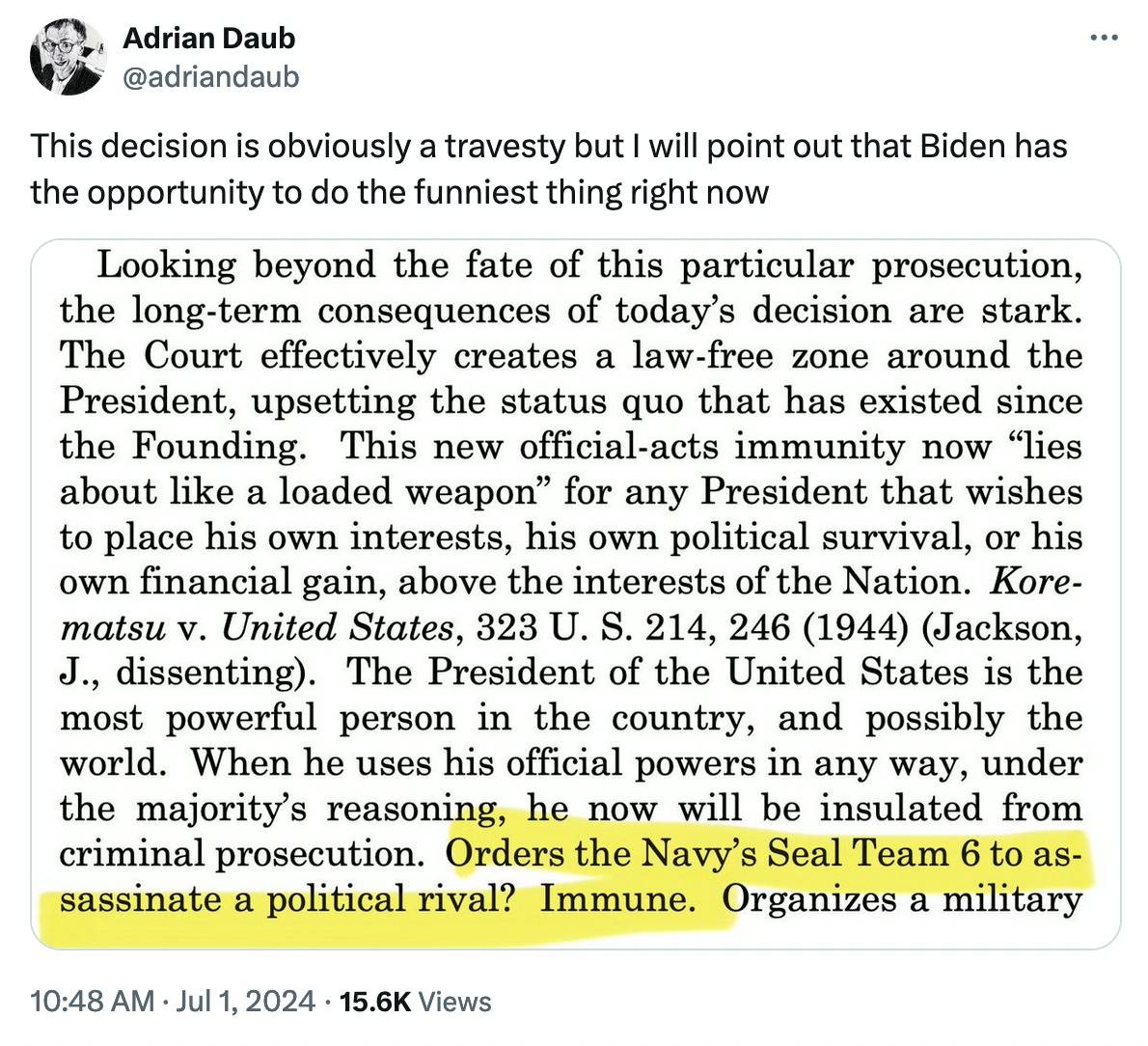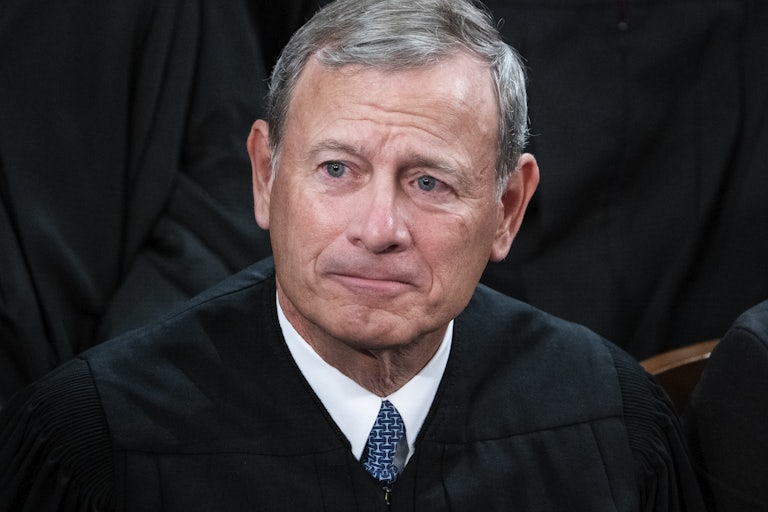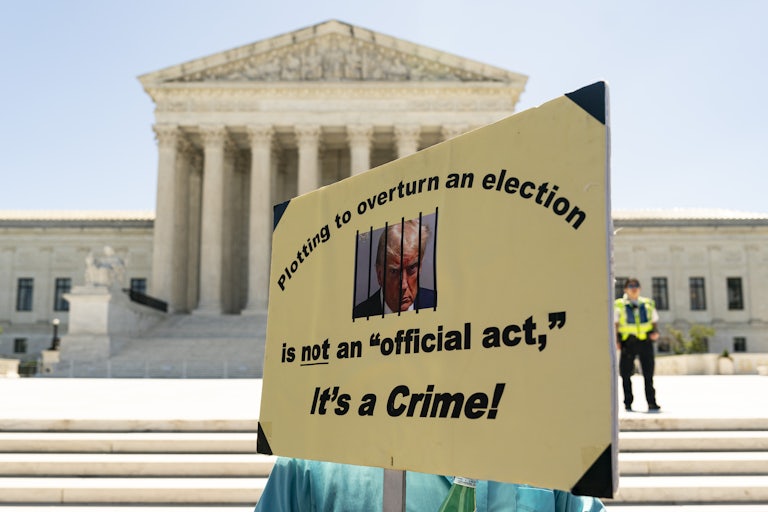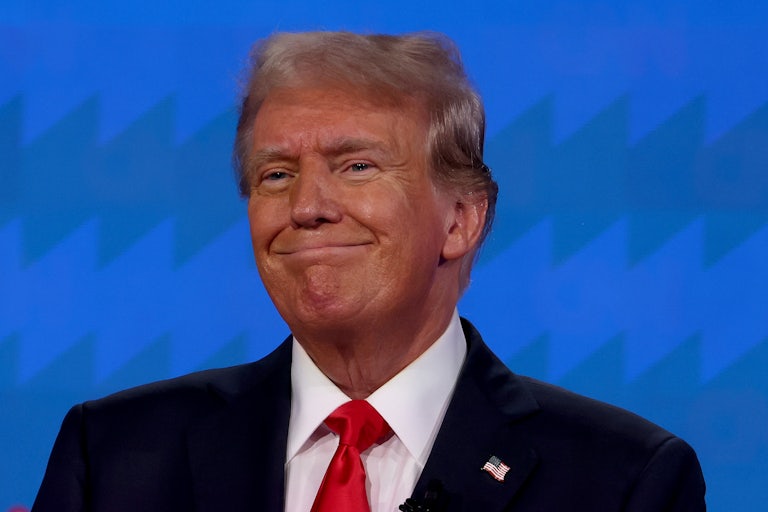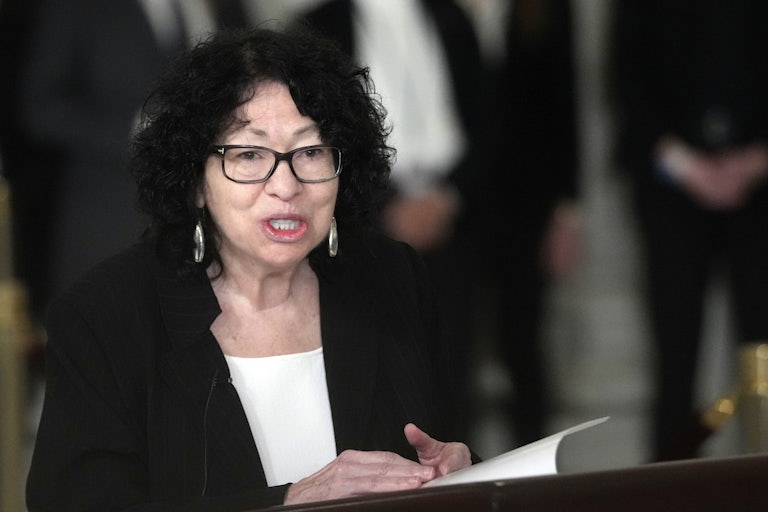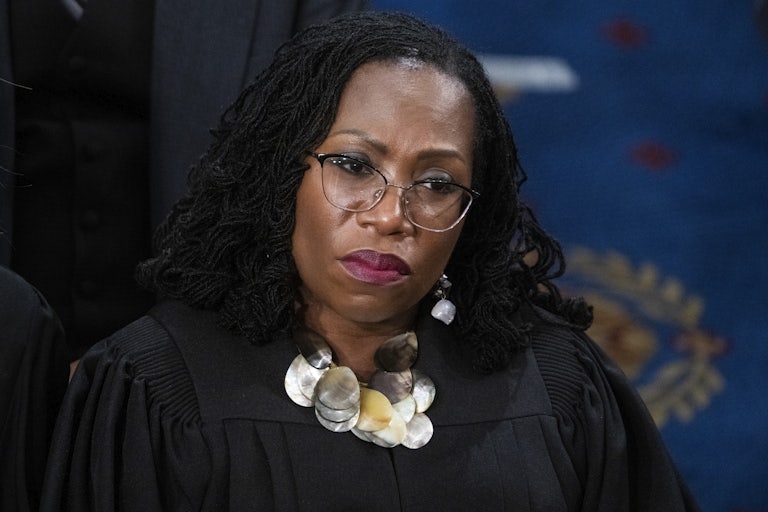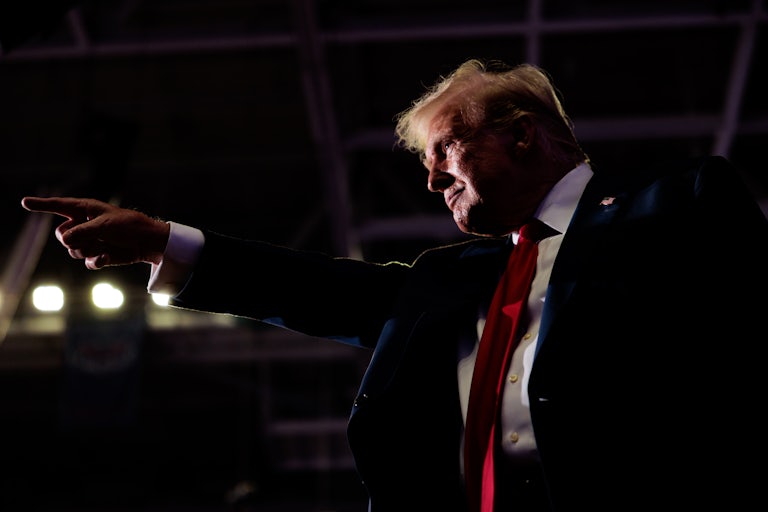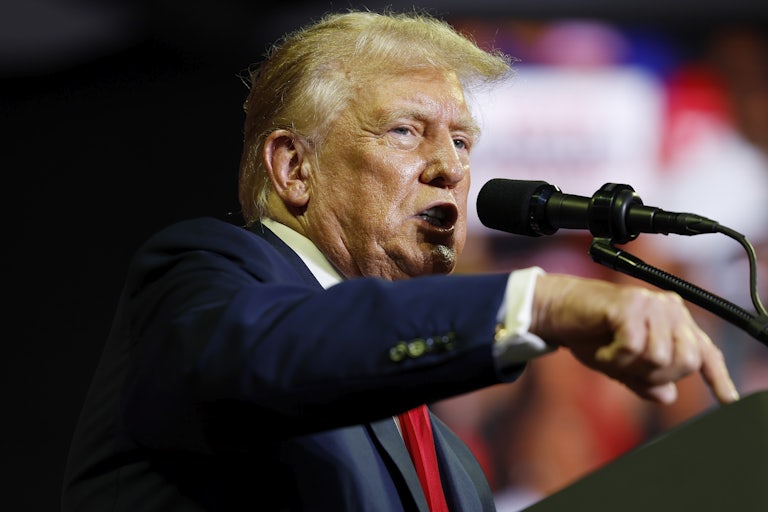The Most Chilling Line in Supreme Court’s Trump Immunity Ruling
The court not only handed Donald Trump ultimate power, but it also gave him an extra boost to handle future trials against him.
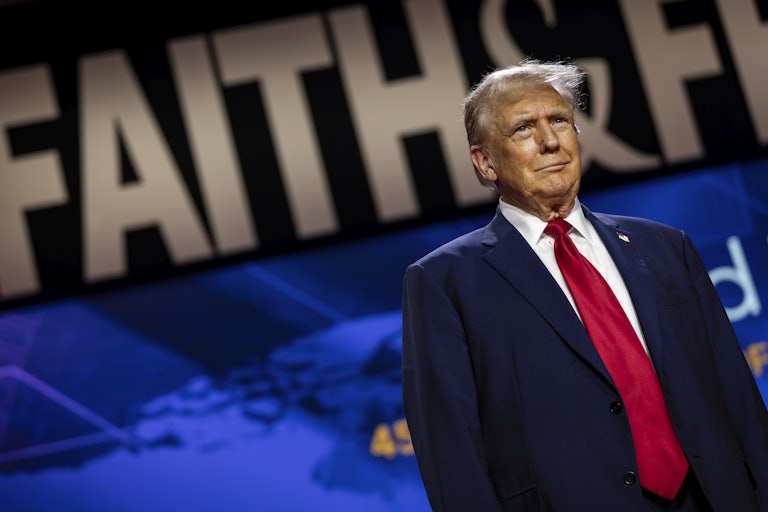
With its ruling in favor of presidential immunity Monday morning, the Supreme Court has heavily undermined much of the evidence expected to be used against Donald Trump in his pending criminal trials.
In the ruling, the court stated that “testimony or private records of the President or his advisers probing such conduct may not be admitted as evidence at trial,” referring to anything a president does as an “official” act.
Much of the evidence gathered against Trump in his January 6 trial, for example, relies on what he said to his advisers and to Vice President Mike Pence, as well as records that were kept on such discussions in the White House. It could also erase evidence of Trump speaking to lawmakers on the evening of January 6 to delay the certification of Biden’s victory. According to the Supreme Court, all such evidence is now unusable, an interpretation that, fortunately for Trump, guts that case against him.
As some commentators on X (formerly Twitter) noted, even the Watergate case against former President Richard Nixon would have been heavily undermined by Monday’s ruling. In the 1974 case United States v. Nixon, Nixon was required to deliver audiotapes of his conversations in the Oval Office to a district court, which contained damning evidence against him and ultimately led to his resignation.



It’s little wonder that Trump immediately celebrated Monday morning’s ruling, as he very likely will escape prosecution for January 6. But, as other commentators on social media noted, the Supreme Court has very well opened the door for Joe Biden to discuss taking outrageous actions in his capacity as president, since the ability to gather evidence against him has been rendered moot.

